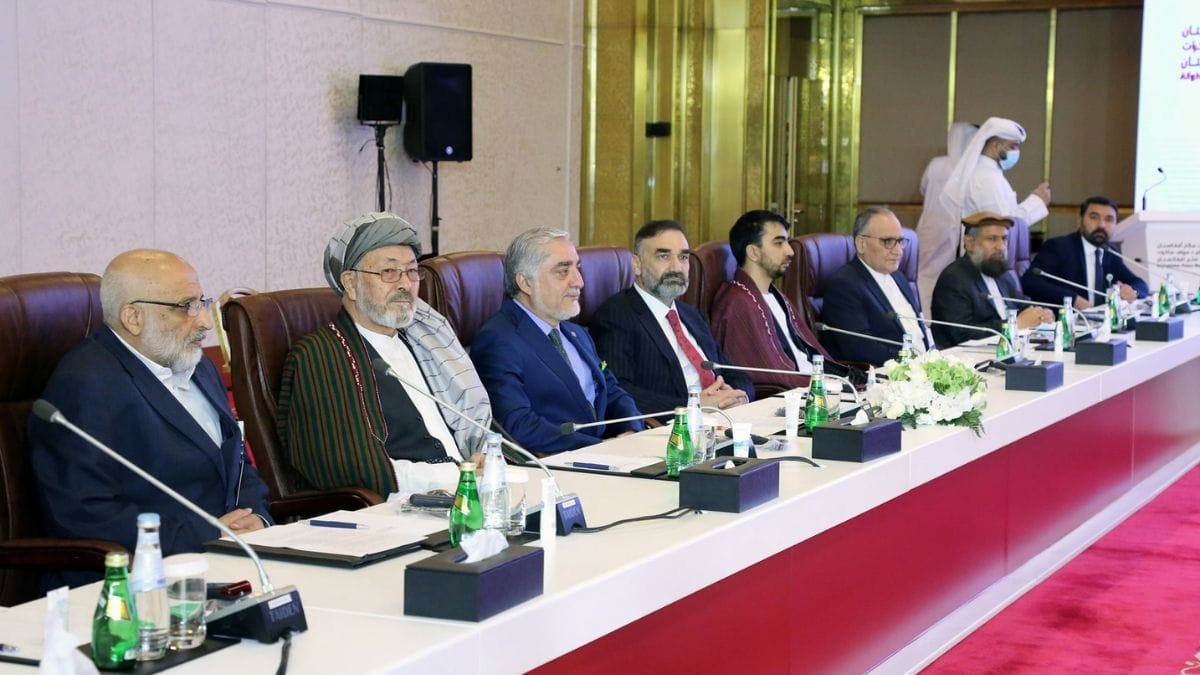Afghanistan’s government and the Islamist militant group Taliban are fighting on two fronts. While the armed conflict continues in different provinces of the war-torn country, a war of words is also taking place between the two over Afghanistan’s future in Doha, Qatar. A delegation from the Afghan government and the representatives of the Taliban are holding talks to decide the country’s political future as US troops withdraw from Afghanistan.
The visiting delegation comprises several officials including Abdullah Abdullah who leads the government’s High Council for National Reconciliation. The purpose of the delegation is to restore the talks between representatives from the Afghan government and the Taliban, which have remained stalled for the past few months. Quoting the Afghan delegation’s spokesperson, Al Jazeera reported that Abdullah Abdullah would be discussing important issues with the Taliban.
With our trust in God Almighty & for the sake of peace in our country, Afghan negotiations entered a new stage today as we started a high-level meeting in Doha. Our thanks to the State of Qatar & all facilitators for their efforts. My introductory remarks:https://t.co/bCzktGXKMA pic.twitter.com/fGrnCYoAxN
— Dr. Abdullah Abdullah (@DrabdullahCE) July 17, 2021
The negotiations, instituted under the Doha agreement between the Taliban and the US, have made little progress owing to sharp disagreements and suspicions between the two sides. The Taliban have been on a military offensive, rapidly capturing several districts of Afghanistan and its border crossings with Tajikistan, Iran and Uzbekistan. This week, the Taliban took control of Spin Boldak, an important border crossing between Afghanistan and Pakistan.
Experts believe that the Taliban’s rapid takeover is meant to increase the pressure on the Afghan government to cede to their demands in the negotiations happening in Doha. The Afghan government has called for a ceasefire between the two sides for any meaningful negotiation to take place.
The Islamist group has advocated a strict implementation of the Islamic Sharia law in Afghanistan while the government wants equal rights to be provided to the women and the minorities of the country. The Taliban have a known history of restricting women’s activities and committing atrocities against minorities like the Shias during their rule on the country from 1996-2001.
However, in their statements, both sides have repeatedly said that the situation in Afghanistan can only be resolved through dialogue. Taliban’s spokesperson has said that the group is committed to dialogue and negotiations. “But the Afghan government needs to also show the same commitment,” he told Al Jazeera.


